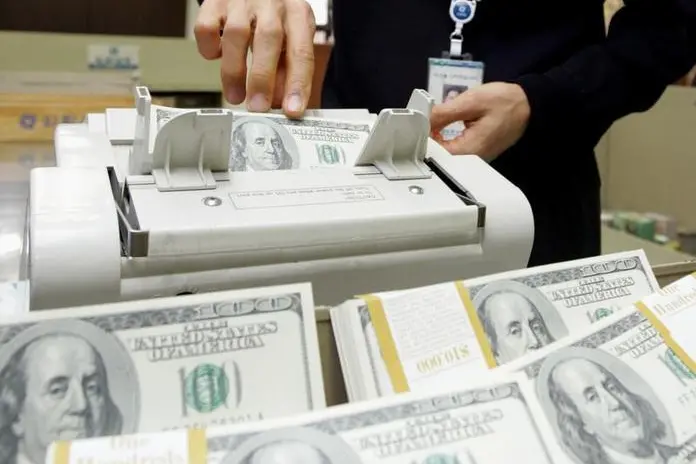PHOTO
LONDON - The dollar fell on Wednesday after Federal Reserve Chair Jerome Powell declined to meaningfully harden his tone on inflation, despite very strong U.S. jobs numbers last week.
In a question-and-answer session before the Economic Club of Washington on Tuesday, Powell said interest rates might need to move higher than expected if the U.S. economy remained strong, but reiterated he felt a process of "disinflation" is underway.
The dollar slipped as Powell spoke and lost more ground in early European trading on Wednesday.
The euro was last up 0.14% to $1.074, after falling to $1.067 in the previous session, its lowest since Jan. 9. It remained far above September's 20-year low of $0.953.
"One would expect that Powell would have delivered a little bit of a more constructive view on the rate outlook," said Kamal Sharma, senior FX strategist at Bank of America.
"In fact, Powell essentially fell back on the FOMC statement," he said, referring to the Fed's interest rate press conference last week.
"So that has taken the steam out of the dollar recovery that we'd see post the payrolls report."
Investors were also digesting hawkish comments from two German officials at the European Central Bank (ECB).
"From where I stand today we need further, significant rate hikes," German central bank chief Joachim Nagel told the newspaper Boersen-Zeitung on Tuesday.
His colleague Isabel Schnabel said it is not yet clear that the ECB rate hikes so far would bring inflation back to 2%.
Against a basket of currencies, the U.S. dollar index fell 0.18% to 103.12 on Wednesday, after slipping 0.3% in the previous session.
Sterling rose 0.37% to $1.209, recovering from Tuesday's one-month trough of $1.196.
The greenback had a short-lived rally following Friday's blockbuster jobs report, which showed that non-farm payrolls had surged by 517,000 jobs last month.
That sent the U.S. dollar index to a one-month high of 103.96 on Tuesday, as investors raised their expectations of how much further the Fed would need to keep raising interest rates.
Futures pricing on Wednesday showed that markets are expecting the Fed funds rate to peak just above 5.1% by June, from a range of 4.5% to 4.75% currently.
"The markets and the central bank are all in a position now where they're just watching the data, so for now we're less sensitive to Fed officials and far more sensitive to data," said Chris Weston, head of research at Pepperstone.
Meanwhile, according to pricing in derivatives markets , traders expect the ECB to hike rates to rise to around 3.5% in late summer, from 2.5% now.
Elsewhere, the yen rose 0.29%, with one dollar buying 130.69 yen, after surging 1.2% in the previous session.
Japanese real wages rose for the first time in nine months thanks to robust temporary bonuses, data on Tuesday showed.
The kiwi climbed 0.19% to $0.634, while the Aussie advanced 0.24% to $0.698, after surging more than 1% on Tuesday.
The Reserve Bank of Australia on Tuesday raised its cash rate by 25 basis points.
(Reporting by Rae Wee and Harry Robertson; Editing by Bradley Perrett, Christopher Cushing, Christina Fincher and Alexander Smith)





















